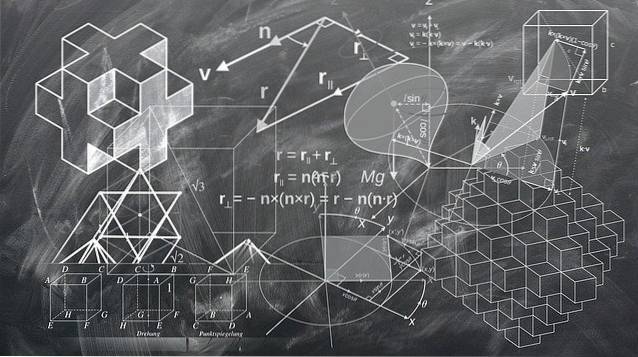
What is False Consensus and how does it affect us?

There are certain cognitive biases that encourage us to perceive the world and those around us in a very different way than they really are. One of these biases occurs in the false consensus effect. A tendency to think that others feel and / or think in a similar way to us. Do you want to know what consequences this can have? Keep reading!
Contents
- What is false consensus?
- The experiments that gave rise to this concept
- The false consensus in the financial field
- Why does this effect occur?
- References
What is false consensus?
The false consensus effect occurs when we tend to think that the number of people who share our opinions, beliefs or behaviors is very high. That is, it is a tendency to overestimate the number of people who behave like us and have our same ideas. It is, in short, a false belief that other people are very similar to us.
This cognitive bias is most acute when those ideas, beliefs or behaviors that we believe we share are very important to us. If, for example, we are followers of a certain ideology that characterizes us, we tend to think that there are many more people who think like us, when perhaps it is not..
The experiments that gave rise to this concept
Lee Ross, a Stanford University psychologist, conducted several experiments in 1977 to study the extent to which biases existed in decision-making and in the interpretation of other people's behavior. Especially when a misinterpretation caused problems during disputes.
In one of these experiments, a hypothetical conflict between several people was explained to several participants. To resolve this conflict, it was explained that there were two options to choose from. The participants were then instructed to follow the following three steps:
- Choose which option they thought the rest of the participants would choose
- Choose an option to resolve the conflict
- Describe the type of people who would choose one option or another to resolve the conflict
The results surprised the researchers, revealing that almost all the participants thought that others would choose the same option as them and when describing the people who believed they would choose the opposite option, they used very harsh language calling them "abnormal".

A second experiment corroborated these results: Several students were asked to walk around the University campus for 30 minutes with a sign that read "Eat at Joe's." Although no one knew which restaurant Joe's was, it was explained that if they did, they would learn something new. It was also explained to them that they could choose the option not to carry this poster.
Subsequently, the students were asked which option they thought the rest of the participants would choose and, as in the previous experiment, a majority of students who had chosen to use the poster, thought that the others would have also decided and that those who did not. They were afraid of looking stupid. This they affirmed critically. This was also the case in the opposite direction: those who chose not to carry the poster thought that those who did were exhibitionists.
The false consensus in the financial field
The false consensus effect can be applied in different fields of social life, such as finance. In this case, there are theories that suggest that the false consensus played a very important role in the financial crisis that began in 2008. Egan, Melle and Weber describe how this effect could cause some investors to overestimate the intentions of others and make inaccurate predictions of trends in behavior that led to major economic problems.
Why does this effect occur?
According to some theories, there are several reasons that could explain this common cognitive bias. On the one hand, spending a lot of time around people with whom we have things in common can reinforce the idea that there are many people similar to us. In addition, thinking that others share our same ideas is a key strategy to improve our self-esteem. Thinking that other people carry out our behaviors and ideas makes us feel better about ourselves.
This can cause us to develop incorrect beliefs about others and even behave inappropriately around others. That is why it is convenient to remember that what we assume as part of common sense may not be an absolute truth shared by all the people we meet. Taking this into account would save us a lot of conflicts and bad predictions.
References
The False Consensus Bias Makes Us Think That Others Are More Like Us Than They Really Are. 2016. http://www.opentextbooks.org.hk/ditatopic/15680.
The False Consensus Effect. https://gohighbrow.com/the-false-consensus-effect/



Yet No Comments